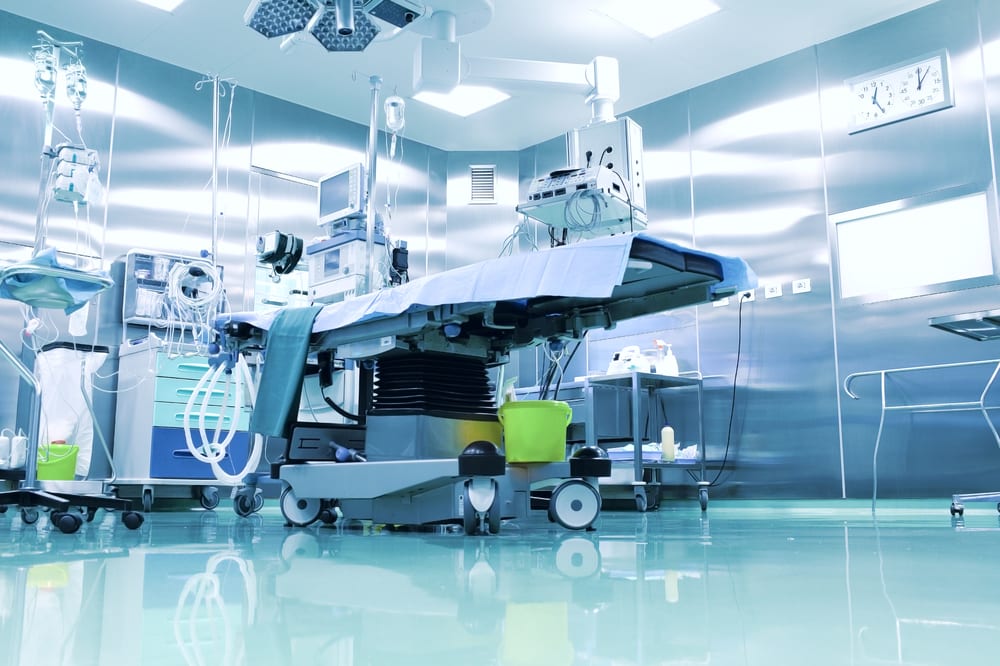For field service companies, beacon technology offers a useful way to track and service a range of medical equipment. These small, context-aware and connected devices can relay a range of data directly to a technician’s mobile device.
Similar to the machine-to-machine communications enabled by the Internet of Things, beacons provide the potential for faster, efficient asset servicing. The technology uses Bluetooth low-energy (BLE) to identify when a smart device is within proximity.
If Bluetooth is enabled, a corresponding app on a technician’s device receives the information. A range of useful data can then be instantly transmitted, including medical device serial number, manufacturer ID, device type and performance statistics.
The use of beacon technology in healthcare represents key gains for field service. A range of tasks, such as locating assets, repairs, management and quick data retrieval, are simplified with beacons. For technicians, the possibilities of adaptive media — media that respond to users — are considerable.
Location Awareness
For high-value medical devices to function efficiently, regular preventative maintenance is key. But locating that equipment in large medical centers can be a complicated, time-consuming task.
Image via flickr/Jonathan Nalder
Small, battery-operated beacons, similar to GPS tracking devices, can be attached to any medical device to provide technicians with geo-mapping. Moreover, beacons can be programmed to require that inspections and servicing follow strict, step-by-step protocols.
A recent report by ABI Research indicates that healthcare will contribute significantly to the large percentage of beacons being shipped globally by 2019. ABM Healthcare Support Services is one company that’s poised to take advantage.
“There are some significant benefits coming down the line and there will be large scale adoption, both by us and our clients,” predicts Stephen L. Grimes, chief technology officer at ABM. Built-in support from iOS, Android, Linux and Windows 8 operating systems will further benefit adoption.
This is significant for field service because increased numbers of mobile devices are being used to connect remote field service workers to legacy applications. Greater reliance on mobility and trends, such as Bring Your Own Device (BYOD), enables field service companies to access new and dynamic capabilities.
Improved Asset Management
In addition, technicians are increasingly able to use a company-sponsored or personal mobile device to perform a variety of tasks by accessing cloud services. Beacons offer a further advantage through low-cost asset tracking. Technicians can utilize beacon information pushed to their mobile devices and then send that data to the Internet for storage or immediate analysis.
In general, pre-existing Wi-Fi and RFID technology have been adequate for tracking medical assets. As IT leaders recognize the advantages of these tiny transmitters, look for increased use of beacon technology by internal healthcare departments, including facilities management.
Moreover, with the growth of adoptions in other sectors, such as retail, travel and entertainment, greater reliance on beacon technology for the field service industry is imminent. Healthcare represents an ideal environment for utilizing the special characteristics offered by beacons. They offer the potential for creating sustained value through improved asset management.


Great post Kerry. Thanks for sharing. Its truly interesting how brands across various verticals come up with new ways to leverage beacons to enhance consumer/ visitor/ employee experiences. When ti comes to hospitals, apart from asset management, beacons can also help in improving the productivity of hospital staff. For example, doctors could plan their workday more appropriately by accessing their duties and appointments directly from their personal mobile devices as soon as they enter the hospital premises. Beacons could also be used push notifications, such as changes or updates to their appointments, to patients mobile device on their arrival at the hospital. Brands these days are being so innovative with ideas around beacons that few of them have come up with innovative implementations that simplify our daily lives. For example, Carrot hunger app, is a calorie counting app employs beacons to help you eat less, while Elevate is another app that uses beacons to allow you to monitor productivity. We’ve compiled a list of 4 such apps here: http://blog.mobstac.com/2015/03/4-ways-beacons-ensure-you-lead-a-smart-life/